Conversation with NYFA Alumni Gabriele Fabbro & Ydalie Turk on their latest feature collaboration "Trifole"
In this interview, NYFA alumni Gabriele Fabbro and Ydalie Turk dive deep into the making of their latest feature film, Trifole, a beautifully grounded story about a woman returning to her Italian hometown to care for her grandfather and join his truffle-hunting world. The film secured a theatrical distribution deal with Academy Award–winning Cohen Media Group and it's also on Italy’s shortlist for the international feature Oscar submission.
Trifole is currently showing in U.S. theaters, rolling out on more than 100 screens nationwide, including Landmark and AMC theaters—among them Gabriele’s personal favorite, AMC Burbank 8. Don’t miss your chance to catch it on the big screen!
NYFA Alumni Network: Gabriele & Ydalie, can you tell us a bit about yourselves, your careers, and what brought you to the New York Film Academy?
Gabriele Fabro (G.F.): My name is Gabriele Fabbro. I was born in Milan, Italy, and graduated from New York Film Academy in 2018 with a BFA in Filmmaking. I applied to NYFA because I wanted a school that would keep me on set as much as possible, allowing me to learn by doing and explore every aspect of filmmaking I hadn’t yet experienced. Since graduating, I’ve been actively making films, starting with smaller productions such as short films, music videos, and commercials, before moving on to directing feature films. In 2021, I directed my debut feature, The Grand Bolero, which premiered at the Austin Film Festival and was distributed across the U.S., U.K., and Europe by Prime Video.
I am now working on my second feature, Trifole, which has been selected for the 2025 Palm Springs and Santa Barbara Film Festivals. The film opened in U.S. theaters on November 14, distributed by the Academy Award–winning Cohen Media Group. I’m also thrilled to share that our distributor has confirmed over 100 screens for the first week, across Landmark and AMC theaters, including my favorite spot, AMC Burbank 8, where I watched countless movies while attending NYFA.
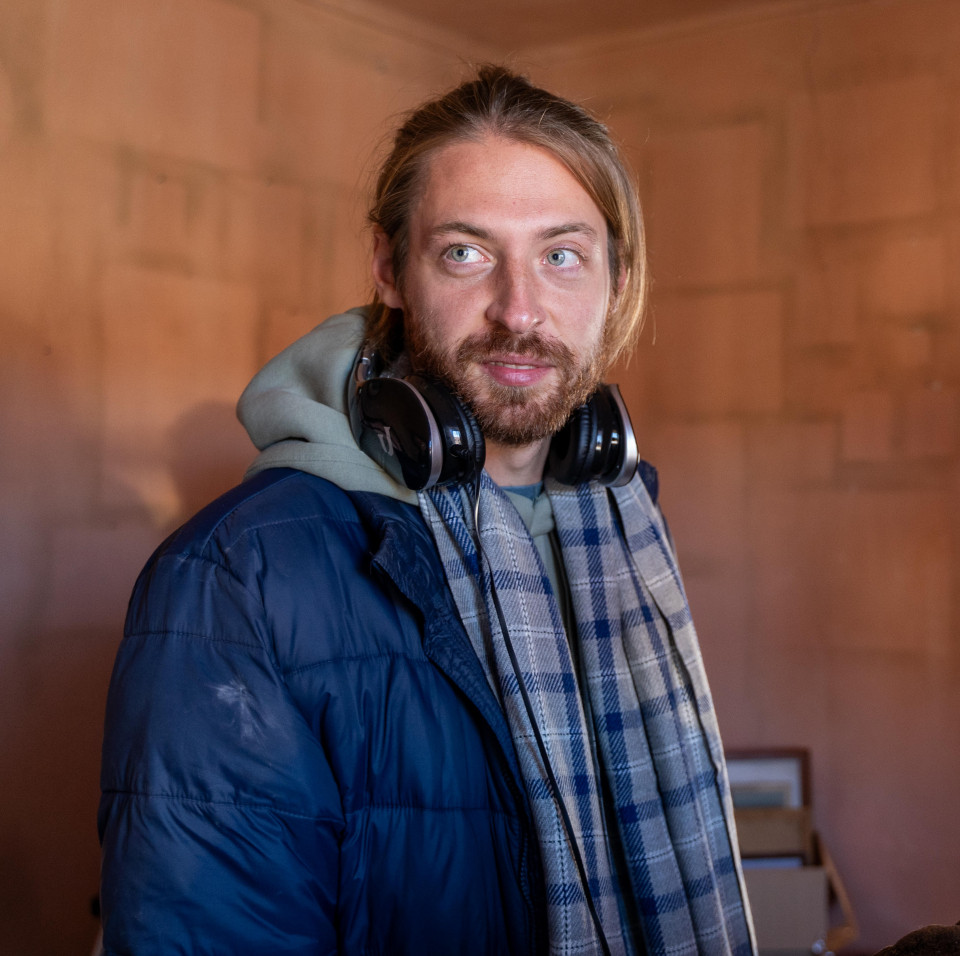
 NYFA Alumni Network: Tell us more about your latest film, Trifole. What inspired you to tell this story?
NYFA Alumni Network: Tell us more about your latest film, Trifole. What inspired you to tell this story?
G.F.: Trifole tells the story of Dalia, a modern, lost young woman who has lived in London for many years and now returns to her hometown in the Langhe region of Italy to care for her aging grandfather, Igor, an expert truffle forager. Accompanied by his loyal dog Birba, Dalia embarks on a journey to find a legendary truffle that could save Igor’s home and change both their lives. We co-wrote the story with Ydalie. We have both long been fascinated by the world of truffle hunters and wanted to tell a story set within it. It wasn’t until I moved to Piedmont and began listening to local stories that we decided to bring this film to life. One truffle hunter in particular, Igor Bianco, inspired us to begin writing. He ultimately became the basis for the character of Igor, and much of his dialogue is drawn directly from what he told us (like the vineyards seeking more land and cutting down forests).
Truffles are extremely delicate; they grow only under very specific atmospheric conditions and rely on a healthy abundance of trees. What struck us most was discovering that all Igor Bianco wanted was to fight climate change and the ongoing deforestation around Alba by planting more truffle trees. His passion and mission gave us a deep, urgent desire to tell this story.
NYFA Alumni Network: Ydalie, Trifole is your second feature collaborating with Gabriele. How has your creative partnership evolved, and what makes your director–writer/actor dynamic work so well?Y.T.: Gabriele and I met on the first day of orientation at NYFA, and we clicked immediately. Thereafter, I auditioned for his class in the directors’ program, and the rest snowballed from there. Before our first feature film, The Grand Bolero, we had worked on about 10 shorts together (we counted recently), and I think these projects were really formative. In the more obvious sense, our partnership evolved from being an actor/ director relationship to one of co-writers, and a lot more (he has even DP’d some of the work I’ve directed). However, most importantly, what’s developed over time is a shorthand. We trust each other creatively, we’re very honest, and this ‘shorthand’ means we bypass some of the hurdles that come when people still need to figure each other out. Plus, in Gabriele, I’ve met my match in passion, commitment, and an utterly irrational love of cinema.
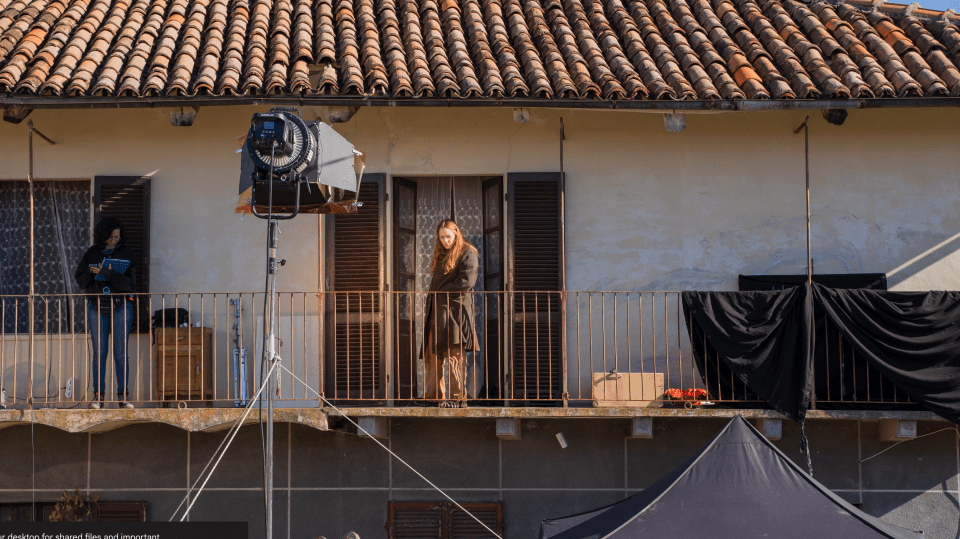 NYFA Alumni Network: Ydalie served as both lead actor and co-writer on Trifole. How did you approach writing? Did the script change or evolve during rehearsals or filming?
NYFA Alumni Network: Ydalie served as both lead actor and co-writer on Trifole. How did you approach writing? Did the script change or evolve during rehearsals or filming?G.F.: Ydalie is one of the most talented and brilliant writers and actors I know. This is the second film we’ve written together. Although we are very different, our cinematic goals align perfectly. For this film, we took a different approach from our first film, The Grand Bolero. As mentioned before, we wanted to tell a story about truffle hunters but knew very little about them. So I went to Alba in 2021 with no fixed ideas and simply listened to local hunters, farmers, and institutions eager to share their stories. I would then tell all these stories to Ydalie while she was in South Africa.The script grew from these real-life accounts. Ydalie and I treated the script almost like a documentary rather than fiction, and what surprises us is how it became a magical fairy tale. Viewers often describe it that way, though those who know the Langhe recognize its deep realism.
The script also evolved during filming. We shot during real events like the truffle fair and auction, allowing reality to shape the film. I believe that shooting with real people affected the performances too. It raised the stakes so much that Ydalie was terrified to perform around "an audience". In a weird way the set felt more like we were on a theatre stage. Because of all the unscripted people, she had to struggle to remain in focus. I think this contributed to some of the best moments in her performance, such as when she sees her truffle behind the glass altar at the fair. I remember that day vividly. While watching the screen, I did not recognize Ydalie at all. She was so focused that she became someone entirely different. She became Dalia.
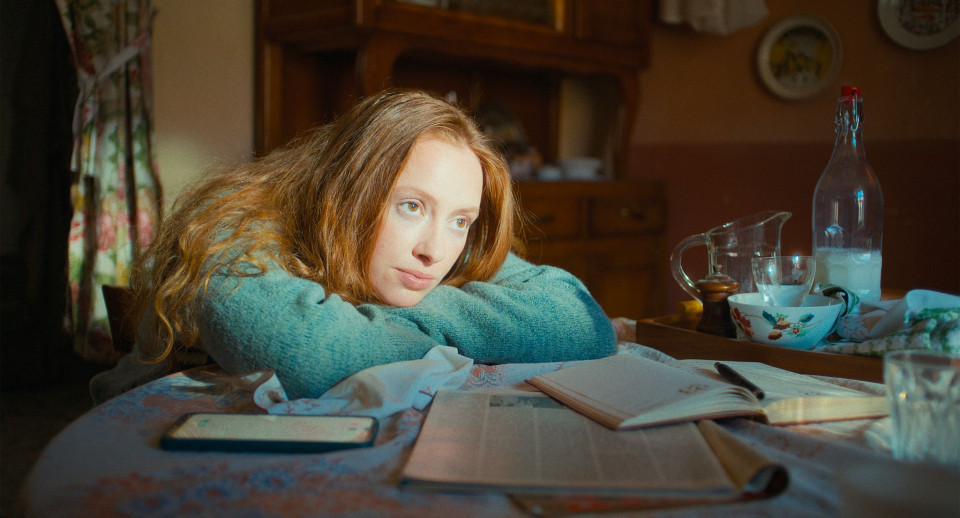
NYFA Alumni Network: Ydalie, how did you separate those two roles?
Y.T.: Once filming began, I made a conscious effort to try and forget that I had any hand in writing the script. I wanted the space to focus solely on being an actor, but it was easier said than done. Sometimes I felt protective of the script, if things changed, or convinced entire scenes needed rewriting. Gabe was a great collaborator in this respect, allowing me to focus on performance as much as possible. Still, the script changed throughout the shooting process; you adapt to the actors, we’d change things for rhythm or to make sure the dialogue was authentic to the region, and scenes were cut or trimmed based on scheduling. Also, sometimes things work on paper but feel stale on the day, and we wanted to leave room to deal with that; sometimes you think something is comedic and it's overly dramatic or vice versa.
NYFA Alumni Network: NYFA alum Brandon Lattman was also the cinematographer of the film. Tell us more about working together. Were there any specific references or inspirations that guided your visual decisions?G.F.: Brandon Lattman and I literally grew up together at NYFA. He's one of the most talented cinematographers I know. He shot most of my student films, including my thesis, 8. During our time at NYFA, we bonded deeply and discovered how much we think alike. We like to think we're each other’s eyes, so it’s always a great pleasure to work with him. He always has my back even in the toughest situations. Our preparation is always meticulous. We rely heavily on shot lists. We both agree that cinema is a visual language, so it is essential to build that language before we get to set in order to be precise with our choices and avoid creating “pretty images” that don’t serve the story.
Our film deals with simplicity, tradition, and preserving the harmony of nature. Brandon had the brilliant idea to step back from acrobatic camera work and instead frame the Langhe region using static shots and very small photographic vintage lenses. Living as a truffle hunter requires patience, waiting, and quietness. Camera and lenses needed to reflect that way of life. That is why most of the shots in the first half of the film are strictly static, portrait-like, and contemplative. They also mirror Dalia’s state at the beginning of the film (lost and insecure).
When Igor sends Dalia into the woods to hunt the legendary truffle, the camera becomes handheld and follows her actively as she finally takes charge of her actions.
In the final act, at the extravagant truffle fair, the camera becomes disoriented by the crowds of people going wild for truffles. Here, the camera reflects the fast pace of progress that is devouring traditions and nature. It needed to make the audience feel unsettled, so we embraced a shooting style we both usually dislike: a confused, dynamic television style. Quick pans, rack focuses, jarring angles, anything to convey just how brutal the pace of progress really is.
NYFA Alumni Network: Gabriele, when you step onto a set, what’s most important to you as a director? How do you guide your team to bring your vision to life?
G.F.: The set is always a challenging creature. You never know what will go right and what will go wrong. You can plan meticulously for years for this moment, yet everything can change in an instant. For now, I strongly believe in Bertolucci’s approach. Every aspect related to the crew such as cinematography, music-sound, editing, and production design must be precise and carefully planned, while the actors are given extreme freedom. For Bertolucci, cinema was all about the balance between a meticulous technical execution and the human imperfections of acting.
Ultimately, the most important rule for me is to listen. By this, I do not mean being permissive about everything that happens on set. Sometimes the ideas developed while writing simply do not work during production, especially when shooting on location and often with real people. Reality always takes the filming in a different direction. Sometimes that new direction is better than what was planned, and it should be followed. Other times, it is not. The hardest part is knowing when to let go and when to hold firm.
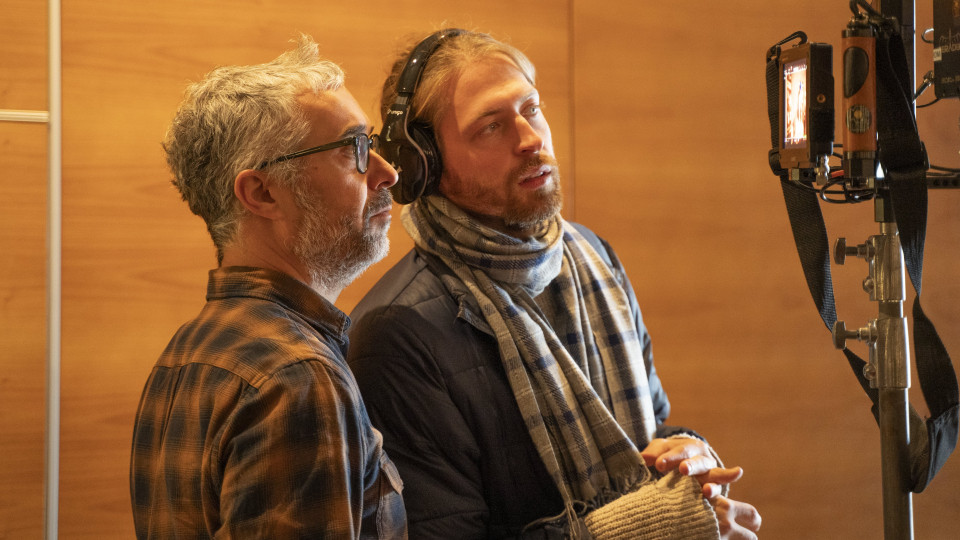
NYFA Alumni Network: Ydalie, what’s most important to you as an actor? How do you bring a character to life?
Y.T.: For me, preparation is important. I really like to sink my teeth into prepping beforehand, and then trying to let it go and stay open on set. In addition, at the time, I didn’t know how important mental stamina was for a bigger role. In a play, the momentum of the play keeps you going for every performance. On set, you’re doing small bits, out of sequence, for weeks on end—you have to find focus and keep your energy keyed in. This is a lesson I take with me onto every job I do now.
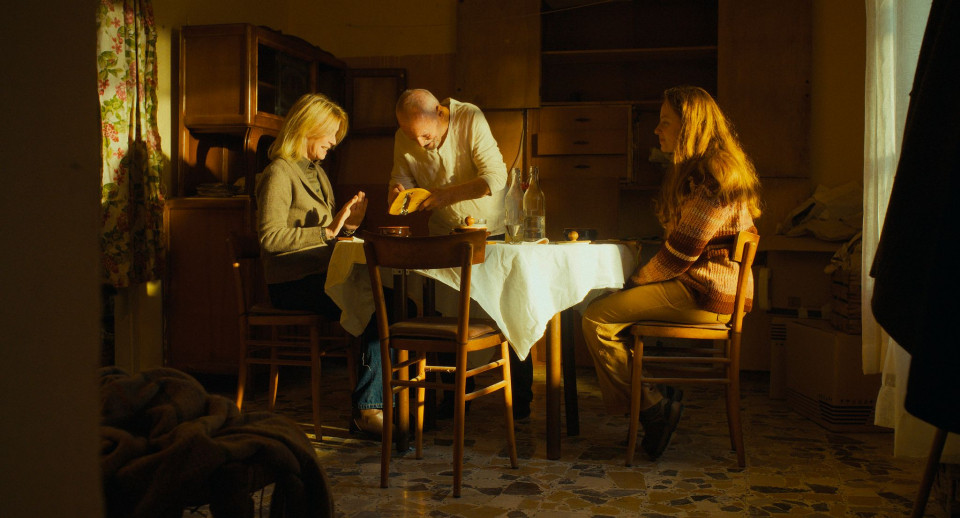 NYFA Alumni Network: Trifole's cast features two of Italy’s most acclaimed actors, Umberto Orsini and Margherita Buy. What was it like directing such seasoned performers?
NYFA Alumni Network: Trifole's cast features two of Italy’s most acclaimed actors, Umberto Orsini and Margherita Buy. What was it like directing such seasoned performers?G.F: It was a true honor to have such masters in our cast. At first, I was really afraid they would not listen to me, but I soon learned on set that what made these actors great was their ability to listen. Great acting, in the end, is built on great listening. Listening to other actors, to the filmmakers, to the story, and even to the props around them. In a way, it was like becoming a kid again, searching for the coolest game to play.
Another important lesson from actors of this caliber is how seasoned and aware they are of every department on set. They constantly checked if their marks were right, if the lighting was good, and especially paid close attention to the sound department to ensure their voices were captured correctly.
A special mention must go to Umberto. It was truly inspiring for me and the entire team. Despite being ninety-one years old, he was a driving force, always curious, eager to improve, and deeply passionate about acting. To this day, he never told me about his past work with Fellini or Visconti. Instead, he only shares the projects he wants to work on next. I hope to become like him one day, a respected icon who devoted his life to being on stage as much as possible. It means so much to me that our paths crossed and that we became dear friends.
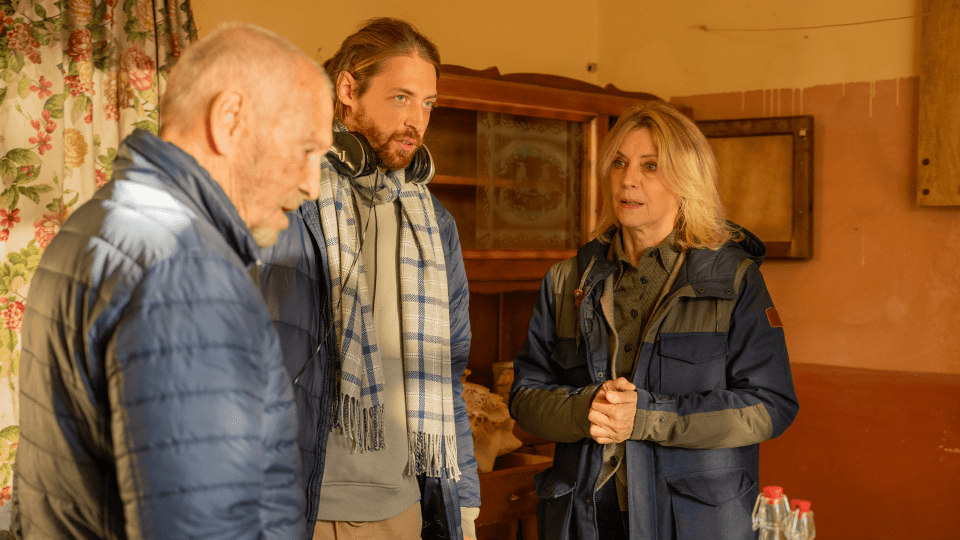
Y.T.: Working with Umberto and Margherita was extraordinary; watching them work was a masterclass. Most of my time was spent with Umberto, and he is a marvel. He was 90 when we filmed, and on top of his game. He gave me a lot of advice, practical stuff like keeping my face open to the camera and being aware of my light. But mostly, I found his dedication and passion really inspiring. I had the privilege of seeing him perform a one-man show in Rome, and was totally captivated alongside everyone else in the audience.
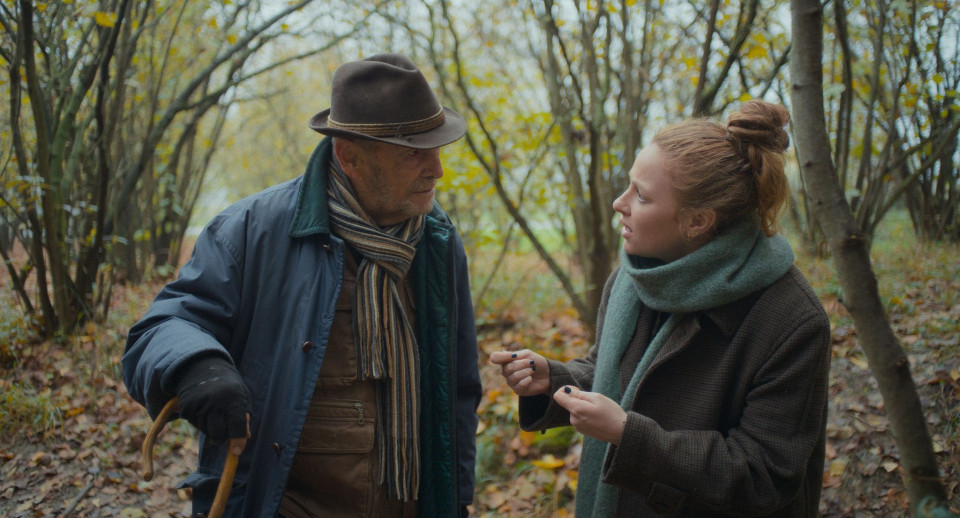
NYFA Alumni Network: The film has had a positive reception at festivals and secured a U.S. theatrical distribution deal with Cohen Media Group. It is also on Italy’s shortlist for the international feature Oscar submission. What do these recognitions mean to you?
G.F.: First and foremost, none of these achievements would have been possible without the incredible work of the producers behind this film (Casey Diepeveen, Massimo Fabbro, John Humber, Ilaria Marchetti, and Mattia Puleo) who continue to push this project forward with passion and dedication.I’m truly glad that this small story is finding the space and recognition it deserves. I say this especially because of all the wonderful, genuine people we met during production. In many ways, the film is a portrait of what the Langhe region is today. I didn’t want to portray it in a spectacular or idealized way; I wanted to stay true to the people and the stories we encountered. When the movie opened in Italian theaters last fall, I was deeply happy to see that local audiences recognize themselves in it. Some local cinemas in the Langhe kept the film playing for over 2 months.
In the end, I believe cinema doesn’t always need to be excessive or grand. Trifole proves that people still connect with life’s simplest and most essential things such as family and nature, and that our message about preserving and respecting our roots and our connection to the natural world is finally reaching the audience it was meant for.
Y.T.: It’s difficult to absorb, honestly. You work extremely hard on something, face a million rejections, and some successes, and it’s easier to focus on the next thing. That being said, I am doing my best to enjoy it, because I am extremely proud of the work that we (the whole team) put into this film.
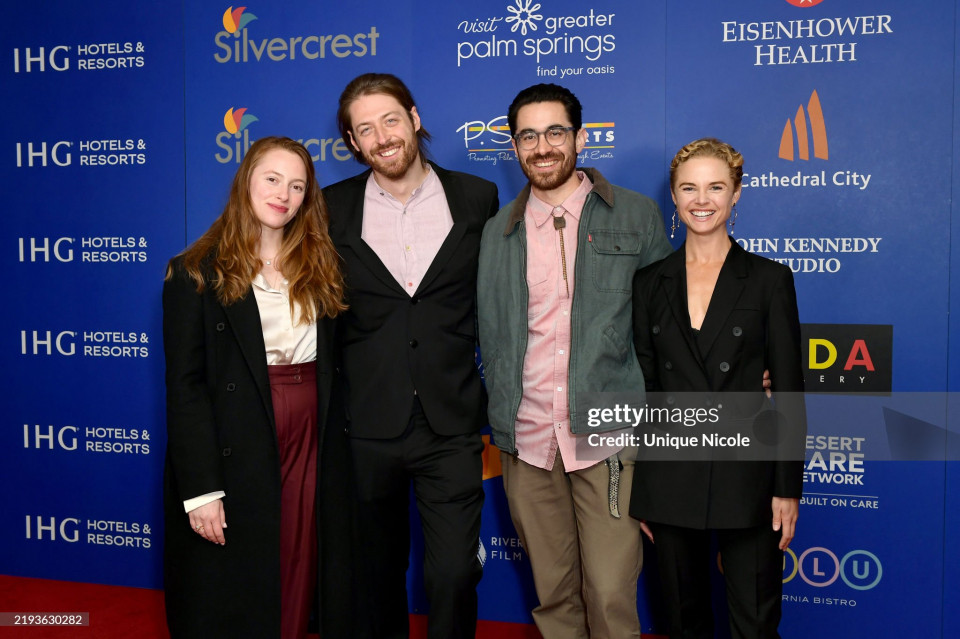
G.F.: I lived in Los Angeles for seven years. I love it! I love big cities and I believe progress has brought great things in the past. But now, this faster and faster way of living, always chasing what's "hot", seems to be destroying the humanity of it all and harming nature. We live in a time where simplicity, family, and nature are often seen as secondary priorities. We have lost touch with our roots and where we come from. Living in the Langhe while making this film made me realize how important these themes are and how lost I had become. I hope this film will have the same effect on the audience, showing them that it is okay to slow down and shift our focus away from artificial distractions to what truly matters in life: family, love, and nature.
Y.T.: I hope they give in to the fable of it all, and I hope they are moved (in whatever capacity that might be.)
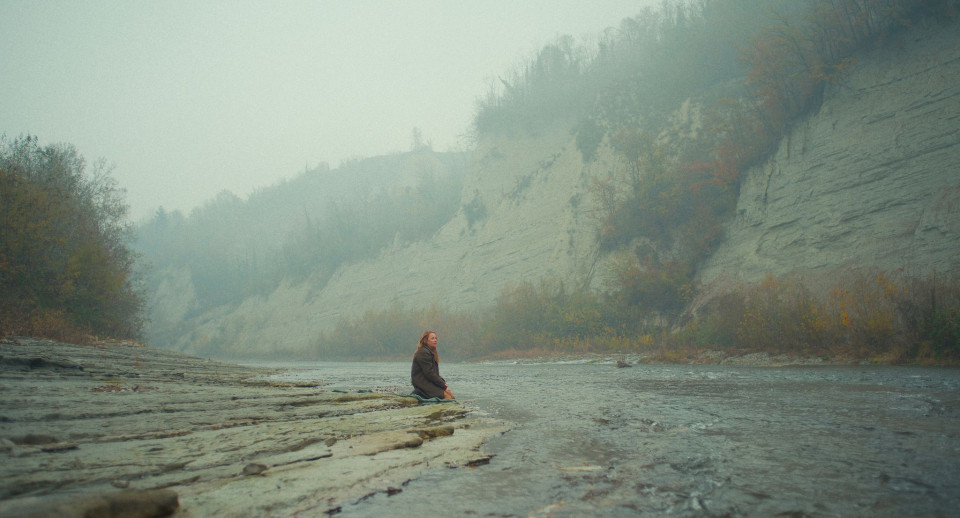
G.F.: New York Film Academy meant a great deal to me. I would not be the filmmaker I am today without having studied here. I would never have met Ydalie Turk or Brandon Lattman, both of whom I continue to work with today. NYFA was the perfect multicultural environment that challenged me and taught me how to be on set. Those three years, from 2015 to 2018, changed me forever, including mentally. I discovered cultures I would never have encountered if I had stayed in Italy. I will always be devoted to this school and its values. I also want to give a special shoutout to Crickett Rumley, one of the few NYFA teachers who has been incredibly supportive even after graduation.
Y.T.: NYFA was pretty consequential. Firstly, in terms of relationships. Our lecturers said it constantly: ‘These relationships will be the working relationships of your life’, ‘find your people now’, etc. At the time, I never took it that seriously, but it is absolutely true. The people I work with most, and collaborate with, are the people I met during undergrad at NYFA, or who went to NYFA and we met later. Gabriele is one prominent example, but as I mentioned, my business partner is a NYFA alumnus, and there are so many more. I’m so grateful for the people I’ve met through the institution. Secondly, I took a playwrighting class in my first year, fell in love with writing, and then continued the class until I graduated. It shaped and influenced me enormously—I didn’t know I could write until then. I really credit that class for shaping the direction my career has taken.
NYFA Alumni Network: And lastly, tell us about something on your wishlist?
G.F.: Cohen Media Group will release a Blu-ray of the film in January. I hope that one day I will walk into the NYFA library and see it there!
NYFA Alumni Network congratulates Gabriele and Ydalie on on all their success!

Comments0
Please log in to see or add a comment
Suggested Articles

